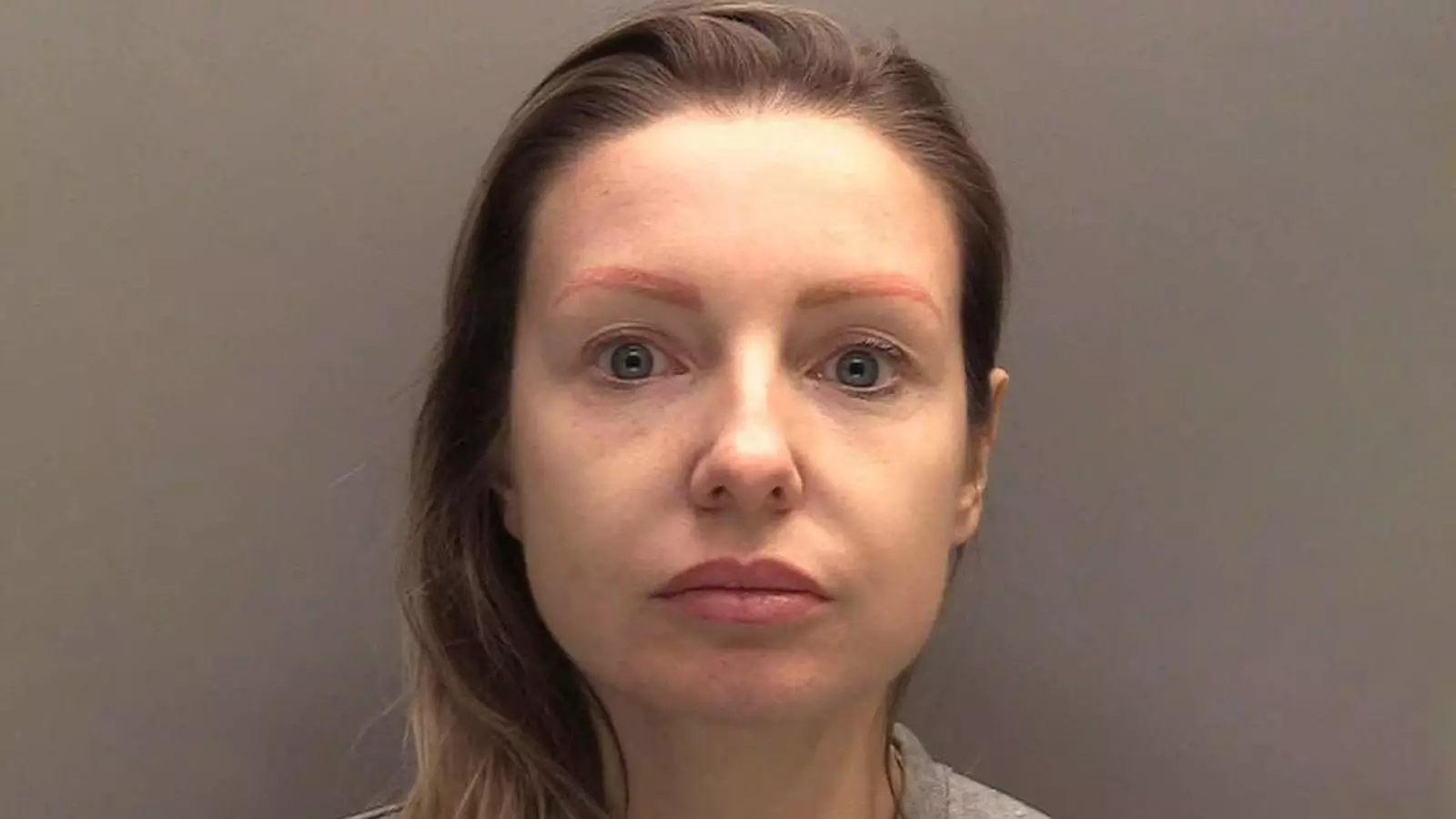In a shocking turn of events, Kerri Pegg, once heralded as a beacon of hope and professionalism within the prison service, has been sentenced to nine years in prison. The very institution she was supposed to uphold has now become the stage for a cautionary tale about the seductive nature of power and corruption. This case does not merely illuminate the downfall of one individual; it shines a relentless spotlight on the systemic vulnerabilities within correctional facilities that allow such misconduct to fester.
At the heart of this scandal is Pegg’s relationship with Anthony Saunderson, an inmate notorious for his leadership of a Liverpool drug syndicate. Their connection, which began during a rehabilitation program ironically aimed at curbing substance abuse, spiraled into a dangerous entanglement that would ultimately cost Pegg her career and freedom. The juxtaposition of her role as a prison governor—someone tasked with reforming inmates—and her illicit affair with a convict reveals the stark moral contradictions within the penal system.
Luxury on Illicit Terms
The details surrounding Pegg’s extravagant lifestyle, funded through her involvement with Saunderson, paint a vivid picture of ethical decay. From a modest background in Stockport, Pegg’s financial choices seemed to scream desperation masked by audacious confidence. The transition from a Honda Jazz to a flashy £12,000 Mercedes stands out not just as a symbol of her questionable alliances but as a manifestation of the deep-rooted issues plaguing the integrity of public servants.
Pegg’s extravagant purchases—designer clothes, luxury handbags, and high-end shoes—hint at a deeper psychological issue. It raises an unsettling question: How many others are lurking within the prison system, seduced by temptation and blinded by the allure of material possessions, fueled by criminal associations? The evidence found in her flat—such as Hugo Boss shoes and a toothbrush with Saunderson’s DNA—illustrates a lifestyle steeped in betrayal, showcasing how one can be ensnared by the very criminals they are meant to rehabilitate.
An Institution Under Siege
The fallout from Pegg’s misconduct extends far beyond her personal demise. Phil Copple, the chief executive of HM Prison and Probation Service, expressed disappointment, stating that Pegg’s actions undermine the credibility of the vast majority of dedicated prison staff. This incident ignites a broader dialogue about the systemic failures within correctional facilities that allow such violations to occur.
It is imperative to examine how control and accountability are exercised in prisons. Pegg’s ability to grant Saunderson a temporary release, unauthorised and unmonitored, exemplifies a chilling lapse in oversight that not only endangers the public but endangers the fundamental purpose of incarceration itself. If a governor can misuse their power, it sends a message to both inmates and staff that integrity is negotiable, eroding public trust in an already strained institution.
A Reflective Reckoning
Pegg’s tearful declaration of her actions as “incredibly stupid” serves as a reminder of the recklessness that often accompanies the intoxicating nature of forbidden relationships in positions of authority. However, her insistence that she believed she had done nothing wrong reflects a troubling lack of self-awareness that suggests deeper issues within the culture of prison governance. How is a public servant’s sense of moral clarity so profoundly compromised? This incident may serve as a wake-up call, prompting a critical reassessment of hiring practices, training, and oversight within the penal system.
While some may rush to condemn Pegg, a more fruitful approach involves demanding systemic changes that prevent such convoluted entanglements in the future. Accountability needs to be part of the fabric of prison culture, fostering an environment where staff and inmates can coexist without the threat of moral decay compromising their safety or rehabilitation efforts.
In a world where sensational headlines often eclipse the underlying issues, Pegg’s story transcends mere scandal; it is a stark warning against complacency in the face of corruption. For those who believe in rehabilitative justice, her case highlights the urgent need for reform, ensuring that not even the most promising among us is above the law.


Leave a Reply